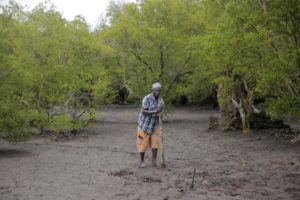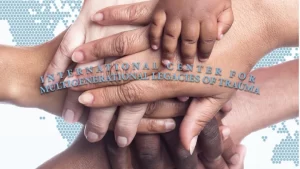And why what is happening in China may be genocide
Bahram Sintash hopes the world sees beyond the pomp and circumstance of the Olympic Games to the distant Xinjiang region, where his father has been missing for five years since Chinese authorities detained him.
“While watching the Beijing Olympics, I want all my fellow Americans to know that there are many Americans who are missing family members in the Chinese internment camps,” Sintash said as the Winter Olympics began. “Please remember that the ongoing genocide against Uyghurs will continue.” He went on to express a common concern within the Uyghur community about what may come next: “China will speed up the genocide after the Olympics, because the world allowing the Olympics to be held in Beijing gave them the green light to do so.”
China’s persecution of the Uyghurs does not look like other recent events that have been declared genocide — in Burma, Iraq, Rwanda, and Bosnia, the Museum’s determinations have leant heavily on evidence of mass killings. At this time, there is insufficient evidence that the Chinese government intends to systematically kill living Uyghurs, an ethnic and religious minority group residing mainly in Xinjiang, in the far northwest of the country.
Still, last November, the Museum’s Simon-Skjodt Center for the Prevention of Genocide released an in-depth report that found that the Chinese government may be committing genocide against the Uyghurs. The details are chilling: Chinese policy is attacking the Uyghur community’s ability to regenerate, primarily through attacking the reproductive capacity of Uyghur women.
“When many people think of genocide, they think of mass killing, but it’s important to note that within the genocide convention, the restrictions on the ability to have children, the transferring of children away from families, those are all components,” said Naomi Kikoler, director of the Simon-Skjodt Center, in Smithsonian Magazine.
In Xinjiang, the number of forced sterilizations and IUD implantations have risen sharply. In 2019, at least 186,400 fewer children were born there compared to what would have been expected if birth rates had remained static. Women have reported that they were threatened with detention if they refused to submit to these procedures, and there are reports that women who do refuse are detained.
Separating the sexes also has the effect of diminishing births — when men and women are not together, they will not procreate. Between 2017 and 2019, the Chinese government built and expanded hundreds of detention centers and prisons in Xinjiang, and detainee populations soared. While their exact numbers cannot be confirmed, as of August 2020, publicly available data suggests that there are as many as 300 to 400 detention centers and prisons where Uyghurs are being detained. Between one and three million people are estimated to have been detained for some period of time. Significantly more people in Xinjiang have been sentenced to prison than in the rest of the county since 2017 — often for offenses related to ordinary activities, such as religious expression.

The coercive interventions of the Chinese government to prevent the birth of Uyghurs raises the question of whether the government intends to biologically destroy the group, in whole or in substantial part, which would constitute genocide. The Chinese government continues to impede the flow of information concerning these crimes.
“They harass and threaten Uyghurs who speak out — including those living in the United States,” wrote Kikoler in the Hill. “But information has gotten out from whistleblowers and survivors. That information likely only scratches the surface of the true extent of the horrors.”
And it stands in stark contrast to the images of China presented during the Olympic Games. “People and athletes should be mindful of the Uyghur reality, ongoing genocide, behind the highly orchestrated event and artificial façade,” said Mamatjan Juma, whose two brothers were detained in 2017 and haven’t been heard from since. “And they should not forget that what they are dealing with is a genocidal communist regime.”
The government’s actions also have targeted the next generation of Uyghurs, whose children face an uncertain connection to their religion and culture. An unknown number, left in the care of extended families following the detention of their parents, have been forcibly removed to state institutions. Uyghur children who cannot be classified as “orphans” have been forcibly transferred to full-time boarding schools, without their parents’ consent or under threat of their parents’ detention. At these schools, the children are prevented from practicing their Muslim faith or using their own language, and forced to learn Mandarin, putting the practice of Uyghur culture and religion at risk.

At the bedrock of China’s persecution of its Uyghur population is the ascribing of less inherent value to that community. The devaluation of the Uyghurs in favor of China’s majority Han Chinese community and its culture has led to a growing entrenchment of Han supremacist beliefs and the marginalization and increased dehumanization of minority groups. This in turn has normalized greater repression of and violence against the Uyghurs, opening the door to the commission of crimes against humanity and genocide.
“American audiences should know that underneath the glamour, the spectacle of the opening ceremonies and the performances of the athletes, the International Olympic Committee and the Chinese Communist Party are hiding the genocide of Uyghurs and the oppression of millions from other groups,” said Rushan Abbas, a Uyghur whose sister has been missing since 2018. “I want them to remember that just because the Games end, does not mean the fight for justice and human rights does also. I want everyone to do their best to educate themselves on what is happening and to listen to the human rights organizations and Uyghurs who have been telling the world about this crisis.”





